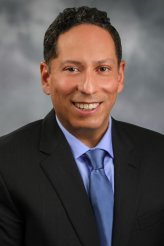Guilamo-Ramos Interviewed for HIV.gov Article
Dean Vincent Guilamo-Ramos was interviewed by B. Kaye Hayes for the article "An HIV Testing Conversation with PACHA’s Dr. Vincent Guilamo-Ramos," which is posted on HIV.gov.
 Dean Vincent Guilamo-Ramos was interviewed by B. Kaye Hayes for the article "An HIV Testing Conversation with PACHA’s Dr. Vincent Guilamo-Ramos," which is posted on HIV.gov. Hayes is the acting director of the Office of Infectious Disease and HIV/AIDS Policy and Executive Director of the Presidential Advisory Council on HIV/AIDS, U.S. Department of Health and Human Services.
Dean Vincent Guilamo-Ramos was interviewed by B. Kaye Hayes for the article "An HIV Testing Conversation with PACHA’s Dr. Vincent Guilamo-Ramos," which is posted on HIV.gov. Hayes is the acting director of the Office of Infectious Disease and HIV/AIDS Policy and Executive Director of the Presidential Advisory Council on HIV/AIDS, U.S. Department of Health and Human Services.
Excerpt
HIV testing is a vital part of our efforts to end the HIV epidemic in the United States. A few days before National HIV Testing Day on June 27, I had the opportunity to talk about HIV testing with Dr. Vincent Guilamo-Ramos, a member of the Presidential Advisory Council on HIV/AIDS (PACHA).
Kaye Hayes: Let’s start with the big picture: what role does testing play in our efforts to end the HIV epidemic?
Vincent Guilamo-Ramos: The only way to be certain whether someone has HIV is for them to get tested. Everyone should know their HIV status. It empowers people with the knowledge to protect themselves and their partners from transmission of HIV. By getting tested, people are able to make informed decisions about their sexual and overall health. This includes starting and adhering to HIV treatment to achieve sustained viral suppression if they test HIV-positive or starting and adhering to HIV prevention methods, including pre-exposure prophylaxis (PrEP), if they test HIV-negative. That’s why “Diagnose” is one of the four key pillars of the Ending the HIV Epidemic in the U.S. initiative.
CDC reported in May that approximately 13% of people living with HIV in the United States do not know they have HIV. People with undiagnosed HIV are not receiving the care and treatment they need to protect their immune systems and prevent the transmission of HIV to their sexual partners. So, the CDC recommends everyone aged 13 to 64 be tested for HIV at least once as part of their routine health care. CDC also advises that individuals whose behavior might put them at higher risk of getting HIV benefit from more frequent testing, such as annual or biannual testing for sexually gay, bisexual, and other men who have sex with men. HIV.gov’s Who Should Get Tested? page has a good summary.